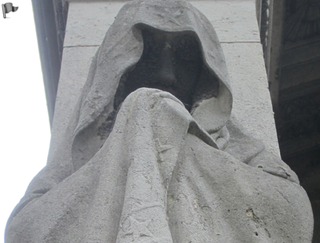Memory
Why Air Crash Victims' Families Still Long to Find the Plane
How memory works in the human brain provides the answer.
Posted June 17, 2016

As relatives anxiously awaited further reports on the location of the Egyptair plane that crashed in the Mediterranean May 19, Australian authorities earlier this month deemed two chunks of debris that washed up in South Africa and Mauritius as having “almost certainly” come from a missing Malaysian Airlines jet.
Flight MH 370 disappeared in March, 2014, in the southern Indian Ocean with 239 people aboard. Though deep-sea salvage ships are still sweeping the area for the doomed 777, officials in charge of the effort have said it’s increasingly unlikely the plane will ever be found.
Jacqui Gonzales, wife of one of the MH 370 passengers, responded to the news by telling CNN that, despite the lack of success, she remains focused on the search because “[finding the plane will give] ... some sense of closure until they bring the whole aircraft back ...”
“Closure” is often invoked by families seeking to locate those missing and presumed dead, but the concept doesn’t explain why our species is so obsessed with knowing the exact location of loved-ones’ remains. Soldiers commonly risk their lives to bring back, or at least bury in a known place, the bodies of comrades. Children of those missing in action in Vietnam continue to search obsessively for the last resting place of fathers. The daughter of a man whose remains were misplaced in a Chicago cemetery told the Tribune, “Can you imagine to not ever know what happened to him? ... With my dad, we don't have that option [of seeing his burial place]."
Why this fixation on knowing where our dead lie? Mythologies of afterlife aside, it’s hard to imagine the dead themselves finding peace merely because their tomb can be pinpointed by GPS. The Greek philosopher Diogenes said, “If I lack awareness, why

should I care what happens to me when I am dead?” It follows that the need to situate one’s dead in space must stem from a deeper need, on the part of survivors, to palliate the agony of losing a loved one. But MH 370 families know roughly where the plane went down; the children of missing veterans often are aware of the general area where their parent disappeared. How does exact geographical position fit into it?
Recent research points to a likely answer. According to scientists at University College London and elsewhere, the hippocampal formation, or HCF—the cluster of organs in the brain’s center that tell us where we are and figure out where we’re going—is also the part of our brain that navigates our memories. Studies by May-Britt and Edvard Moser prove the existence of “place” and “grid” cells in our HCF that fire when they recognize specific points in the physical world; and portions of the same brain structure, according to research performed at London University’s Wellcome Institute, activate when a given memory, usually if not always attached to where it occurred originally, is triggered. The combination of place-recognition and memory allows us to navigate our world, plotting where we’re going based on landmarks we remember. Damage to the HCF will both disable spatial navigation and cause amnesia.
Given these findings it seems probable that, on some deep and maybe not fully conscious level, people are aware of the profound interdependence of place and memory, especially in contexts of high emotion. (The amygdalae, where strong emotions happen, are also part of the hippocampal formation.) Our personality and emotions are built on recall of events that occurred in a specific place, of people who loved or hurt us there. The history of the human species is one of extraordinary navigations across this planet, and our brain must have evolved through this constant interchange between navigation and memory, and the feelings it evoked in the process.
This tight correspondence most likely surfaces in the rites with which we cloak such deep compulsions. The anthropologist Mary Douglas noted that the difference between sacred and taboo is one of place: what’s sacred lies in a physical space that’s known and approved, whereas what’s taboo or proscribed is separated from its proper position in the world. Sophocles’ Antigone is based on the primal wrongness of leaving the bones of Antigone’s brother to be scattered by dogs instead of burying him where he was supposed to lie.
To navigate full-circle, what our graves-location compulsion comes down to is an emotional drive to preserve the memory of those who have gone, in order to feel that our love for them as not in vain, and to take comfort from the illusion that the memory of them, and eventually of us, confers some form of identity after death. Since memories are so deeply rooted in place, we need to anchor them to a tomb, a crypt, a communal grave—even to a set of coordinates on an ever-changing ocean.


